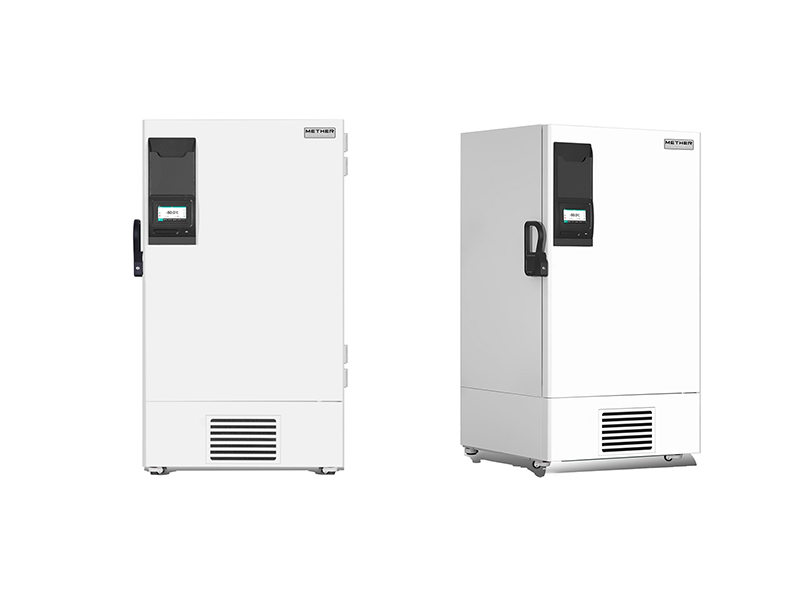
· Un congélateur spécialisé conçu pour stocker des échantillons biologiques sensibles tels que les vaccins, les réactifs et les cellules.
· fonctionne généralement dans la plage de température de -40 à -86, idéal pour le stockage à long terme des matériaux sensibles à la température.
· couramment utilisé dans les domaines médical, de recherche, pharmaceutique et de laboratoire.
· Plage de températures : Assurez-vous que les capacités de température du congélateur répondent aux exigences de stockage spécifiques pour vos échantillons.
· Capacité : Choisissez un congélateur avec la capacité appropriée en fonction du volume d'échantillons à stocker Efficacité énergétique : recherchez des modèles avec des caractéristiques d'économie d'énergie pour réduire coûts opérationnels au fil du temps.
· Système de contrôle : opter pour les congélateurs avec des écrans tactiles, une journalisation de la température et des caractéristiques de surveillance à distance pour une facilité de fonctionnement et une meilleure gestion.
· Caractéristiques d'alarme
: Assurez-vous que le congélateur comprend des alarmes pour une température élevée / basse, une panne de courant et d'autres conditions critiques pour protéger les échantillons stockés. <66· Système de refroidissement : technologie de réfrigération avancée en cascade pour améliorer l'efficacité du refroidissement et réduire la consommation d'énergie.
· Isolation : Matériaux d'isolation haute performance pour minimiser la perte de chaleur et maintenir une température interne stable.
· écologique et faible bruit : utilisation de réfrigérants respectueux de l'environnement et conceptions de réduction du bruit pour assurer un fonctionnement silencieux et durable.
· Entretien et nettoyage réguliers : Nettoyez les bobines de condenseur et assurez un flux d'air approprié pour maintenir des performances optimales.
· Température environnementale et stabilité de puissance : Placez le congélateur dans un environnement approprié (10 ~ 32â) et assurez-vous une alimentation stable.
· Pratiques de stockage : Minimiser les ouvertures de porte, organiser correctement les échantillons et assurer un flux d'air efficace pour optimiser les performances de refroidissement.
· Un congélateur à température ultra-bas fiable assure la sécurité et l'intégrité des échantillons stockés.
· En considérant soigneusement vos besoins, budget et performance du congélateur, vous pouvez sélectionner le meilleur congélateur -86 pour répondre à vos exigences de recherche et de stockage médical.
Mots clés :